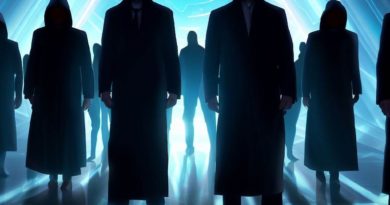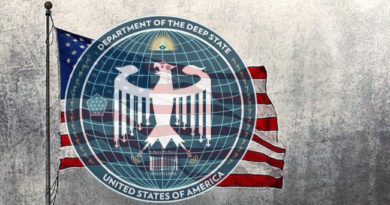The Myth of the Technological Deep State

Marilyn Wolf, Koch Professor of Engineering and Chair of the Dept. of Computer Science and Engineering at the University of Nebraska–Lincoln, discusses how tech professionals have helped protect democracy while refuting recent conspiracy theories have a tech “Deep State” is subverting democracy…
Claims of fraud figure prominently in the fallout from last November’s Presidential election. Some claim that voting machines actually manipulated votes and vote counts. These claims are sufficient widespread that Senators Catherine Cortez Masto (D Nevada) and Senator Tom Carper (D Delaware) refuted those claims on the Senate floor during the Electoral College debate. Nevertheless, these claims persist in parts of the popular media.
My concerns go well beyond their non-existent factual basis for claims asserting manipulation by tampering with voting machines. Claims of voting machine fraud illustrate the myth of a Technological Deep State, a branch of the cadre of elites who secretly control the world. This narrative casts computer scientists as a digital Illuminati who, through their arcane and mystic knowledge of computing, manipulate the world in secrecy.
This myth may be satisfying to some; I am unqualified to opine on psychology. I am, however, qualified to speak on computing both as an intellectual discipline and as a practical art.
Computers have limitations that can create vulnerabilities in their use. But that is not the end of the story. An understanding of how to create reliable systems from unreliable components is one of the great achievements of engineering. Voting machine security is one example. Computer scientists have worked over the past 15 years in a largely successful effort to add printers to election machines to provide a paper trail. These measures allowed election officials to conduct recounts in the 2020 election that provided critical evidence of the integrity of the election. Without these independent means of verifying election results, the nation would have been left in a much more perilous situation. A paper audit trail was suggested by computer scientists precisely because they understand the limitations of computers.
Did these computer scientists work together? Yes. Do they have total control of government? Clearly not–instead, a group of experienced and knowledgeable computer scientists worked to solve a problem. They were not part of the problem as suggested by a fantasy narrative. In fact, they spent a number of years educating the political elites on challenges and potential solutions to voting machine security.
There is a great deal to criticize about the role of computers in modern society. Social networking systems are a red-letter example of computing technologies whose effects have come into serious question. Those concerns do not conform to the Technological Deep State model, either. We know plenty about the effects of social networks. And their methods, while cloaked in normal business secrecy, are sufficiently well understood to allow us to make reasoned judgments about their effects.
The myth of a Technological Deep State is an attempt to explain away complex truths with simple lies. I cannot speak on the motivations of those who perpetrate these myths. I am, however, deeply disappointed by the elites who do so. Those of us who have been fortunate enough to be trained in useful arts have choices to make in how we use our expertise, experience, and visibility. I am proud to say that many members of the computer science profession have contributed to the resilience of our civic institutions by their efforts to enhance the integrity of elections. It is simply a moral outrage to spin a narrative which casts defenders of democracy as part of a cabal that would subvert it.
Marilyn Wolf is Koch Professor of Engineering and Chair of the Department of Computer Science and Engineering at the University of Nebraska – Lincoln. She received her B.S., M.S. and Ph.D. degrees in electrical engineering from Stanford University.
Suggested citation: Marilyn Wolf, The Myth of the Technological Deep State, JURIST – Academic Commentary, January 14, 2021, https://www.jurist.org/commentary/2021/01/marilyn-wolf-tech-deep-state-voting/.
This article was prepared for publication by Tim Zubizarreta, JURIST’s Managing Editor. Please direct any questions or comments to him at commentary@jurist.org.
Opinions expressed in JURIST Commentary are the sole responsibility of the author and do not necessarily reflect the views of JURIST’s editors, staff, donors or the University of Pittsburgh.


